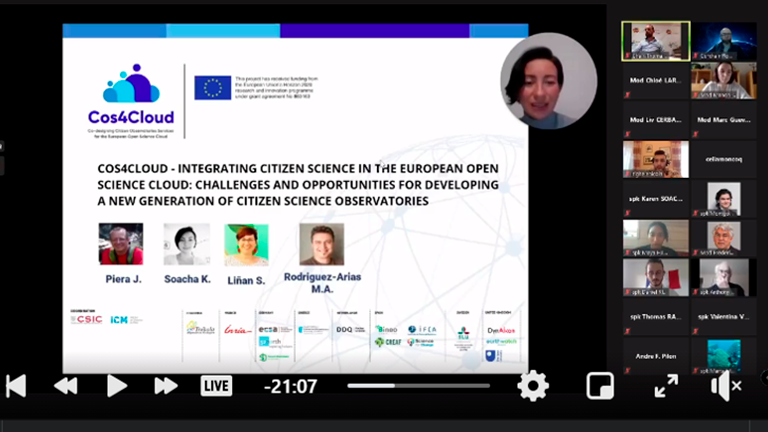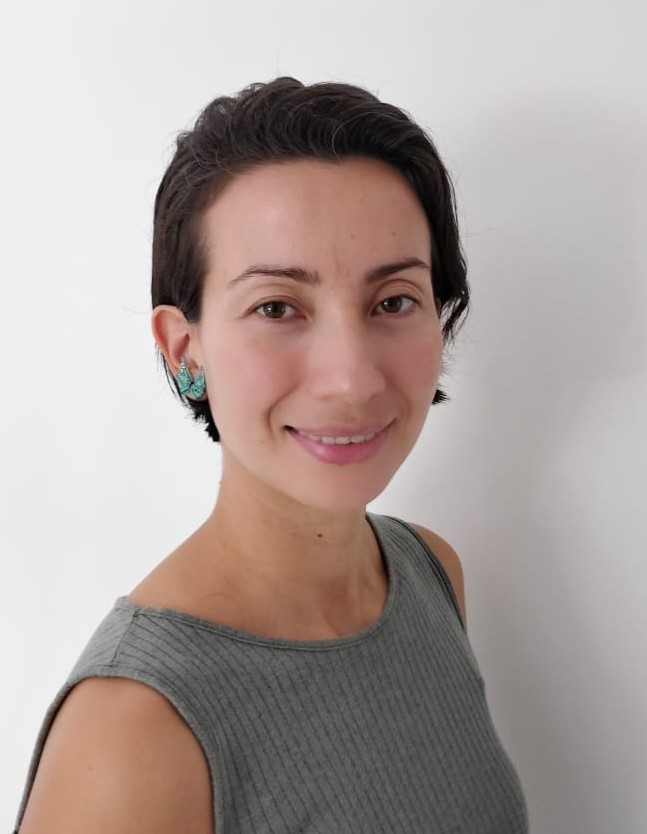
Interacting with people from different countries, genders, and ages and learning from diverse citizen science projects has been the most exciting part of the Cos4Cloud attendance at the 5th Annual International Conference on Participatory Research, Citizen Sciences, Crowd-Innovation and Fab Labs for Peace and Development, an event carried out in the 12th Geneva Forum 2020 framework. Karen Soacha, ICM-CSIC researcher, part of the Cos4Cloud coordination team, and leader of organizing the project’s services’ testing, did an oral presentation to explain the Cos4Cloud project aims, challenges, and opportunities in the citizen science scenario.

“One of the best parts of my time there was to explain to the participants how they could use the services we are developing in their own citizen observatories, because, eventually, they will be the final users“, states Karen Soacha.
For example, the service for automatically filtering out unwanted pictures from camera traps and video streams, and even proposing the species name, would be very useful for the OSI-PANTHERA project, which monitors the high mountain mammals, such as the snow leopard, by using camera traps. Another example is the online portal to download and identify observations from multiple citizen observatories in one place; it will help naturalists and hikers to verify the name of the species they observe. Or the Pl@ntNet service which is a tool to learn plant species names quickly, thanks to the artificial intelligence assistance.
You can watch Karen’s presentation here.
Cos4Cloud, a growing community
The event was also an occasion to encourage the attendees to join the Cos4Cloud community to participate in the co-design and testing sessions, so that they can explain their needs and opinions about the new services, as they are the some of the potential users, ‘we want to create the services from the bottom up, to do this, we need to know the insights of the people that will use the service once it is ready: is it usable, can they add it to their citizen observatory, does it fulfill their needs, etc.’, explains Karen Soacha. Two members involved in the Bioderversita, a participatory research project to discover new areas and new species of plants and animals aimed at young people of an average age of 14 to 15 years old, joined the co-design community during the event.
‘We want to create the services from the bottom up, to do this, we need to know the insights of the people that will use the service once it is ready: is it usable, can they add it to their citizen observatory, does it fulfill their needs, etc.’, explains Karen Soacha.
Geneva Forum places participatory sciences as an essential topic
A variety of citizen sciences projects presented their work at the Participatory Research, Citizen Sciences, Crowd-Innovation and Fab Labs programme. Among them, Measuring the Impact of Citizen Science (MICS) led by EarthWatch, a project that aims to develop an integrated platform of metrics and instruments to measure citizen science costs and benefits. Another interesting project is active minds, whose objective is to monitor the consequences of using bedtime technology on circadian rhythms. These are only two examples; but you can watch all the presentations and find out about more projects.
Karen Soacha finalizes their opinion on the event by highlighting that during the sessions, some of the presenters were under 18 years old “I was delighted to see young people in the presentations, they’re the citizen science future!”.
Geneva Forum is organized by the United Nations, and its objective is to create, support, and develop activities in all topics to contribute to a better future. From 2016, and every year, Objectif Sciences International (OSI) also organizes the International Annual Conference on the Citizen Sciences and Participatory Researches to allow all the actors and operators in these domains to exchange, meet and share their works, expectations, and ideas at the largest international level.
Watch Karen Soacha’s presentation to learn more about the Cos4Cloud project!

















